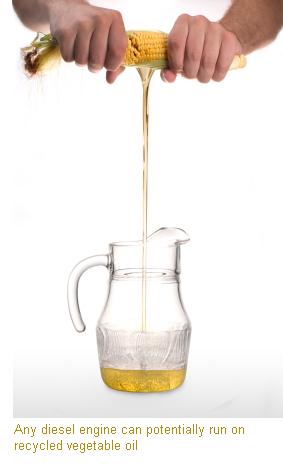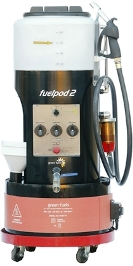Clare Taylor Green Transport Correspondent
 A bus company based in the West Country is using waste cooking oil to run its buses in order to reduce its carbon emissions.
A bus company based in the West Country is using waste cooking oil to run its buses in order to reduce its carbon emissions.
The Chipper Bus Project was unveiled in May 2009 and has enabled First Bus to reduce their carbon emissions by 22,500kg, the approximate equivalent of taking 45 cars off the road for 9 months.
The scheme works by collecting waste cooking oil from surrounding businesses such as pubs, canteens, household waste recycling centres and even Bristol Prison.
Catering manager for the prison, Mark Haddow said: “It’s good to know that we are helping to reduce the carbon footprint of Bristol by doing something so simple as donating our waste products.”
After collecting the waste oil, the bus company uses McKeown’s Bio Fuels who then turn it into fuel. In order to run their buses on 100% biodiesel, First would need to collect approximately 715 litres of waste cooking oil every week.
Although using the waste cooking oil has greatly reduced its CO2 emissions, the biodiesel is costing the bus company more than conventional diesel as it is not possible to apply for the Bus Service Operator’s Grant on the biodiesel it buys.
DIY biodiesel
Some older diesel engines are able to run perfectly well on used cooking oil that has simply been strained, whilst modern cars require it to be warmed slightly by before it reaches the engine.
 This fuel in known as straight vegetable oil (SVO) and it is distinct from biofuel which in the case of the bus company above, is recycled vegetable oil that has undergone a chemical process so that it can be poured straight into the tank or mixed with conventional diesel.
This fuel in known as straight vegetable oil (SVO) and it is distinct from biofuel which in the case of the bus company above, is recycled vegetable oil that has undergone a chemical process so that it can be poured straight into the tank or mixed with conventional diesel.
It is possible to process your own biodiesel at home. A device called the ‘FuelPod 2’ turns used cooking oil into biofuel that can be used in many diesel-engined vehicles. It is the size of a small fridge and is capable of producing up to 50 litres of biodiesel every day. Its fuel dispensing system lets you pump the finished fuel straight into your car. There is no fuel duty to pay on the first 2,500 litres of biofuel produced in this way.
The environmental advantages to using recycled cooking oil to run a car outweigh those associated with the crop-derived biofuel already added to diesel at petrol stations.
0 Comments View now